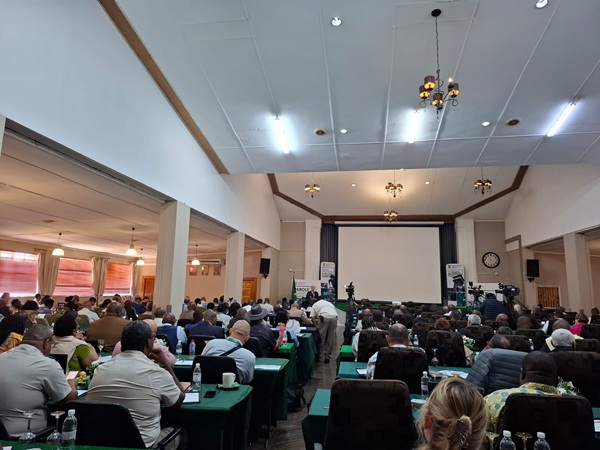‘Recidivism’ is not a word commonly heard in everyday conversation, yet it carries enormous weight in the South African context. The term refers to the tendency of offenders to commit further crimes, and it was a central theme at the National Summit on the Review of the South African Parole System, held on 22–23 September at the Kgosi Mampuru II Management Area in Pretoria.
The summit brought together policymakers, academics, practitioners, victims, and parolees to critically evaluate and reform the parole framework. Spearheaded by the Department of Correctional Services, the summit was hosted in partnership with universities, the Human Rights Commission, and civil society stakeholders.
In his keynote address on 22 September, the Minister of Correctional Services, Honourable Dr Pieter Groenewald, stressed: “It is an important day today. For the next two days we are going to be hearing from people who are the voice of society. Why is this so important? Because corrections are a societal responsibility, not just a correctional services one. Our offenders are from society. We are going to talk about and look at our present parole system. It has its strengths, but there are also challenges. We don’t need to reinvent the wheel, we must look at how we can strengthen our parole system so that we are successful when reintegrating people into society. What will success be? To ensure that people don’t reoffend again.”
He cited alarming figures from the previous year: 209 parolees committed murder and 350 committed rape. “These reoffenders are a threat to society and to the communities of South Africa. Our responsibility is to do everything we can to make South Africa a safer place for everyone.”
Over two days, delegates examined deficiencies in the current system, considered human rights obligations, debated strategies to reduce recidivism, and heard the lived experiences of parolees and victims. From the North-West University (NWU), Prof Wim Roestenburg introduced the Zeta Scale Risk Assessment Tool, while Dr Casper Lötter emphasised the urgent need for reform. He argued that South Africa’s punitive, stigmatising model perpetuates high recidivism, trapping ex-offenders in cycles of social exclusion and poverty. In contrast, Finland’s hybrid model, blending accountability with reintegration, has achieved a 70% desistance rate.
Dr Lötter proposed a framework that includes automatic record expungement after five years, employment incentives, community-based justice, and innovative rehabilitation methods such as reflective autobiographies. With an initial allocation of R50 million for pilot programmes, these measures could reduce recidivism to below 50% within five
years, delivering economic benefits, strengthening communities, and advancing a more humane correctional system.
In a country where crime and reoffending rates remain among the highest globally, strengthening the parole system is critical for balancing rehabilitation with public safety. The summit highlighted the need for evidence-based interventions, stronger community support structures, and greater victim inclusion. These steps are essential for building a just, effective, and humane correctional system aligned with South Africa’s constitutional and developmental aspirations.

Minister of Correctional Services, Dr Pieter Groenewald, delivers his keynote address.
